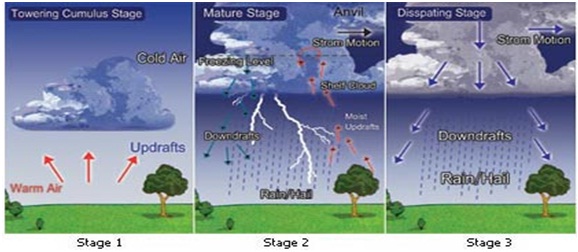▄▄▄▄▄▄▄▄▄▄▄▄▄▄▄▄▄▄▄▄▄▄▄▄▄▄▄▄▄▄
Ahadith mention that Fast Improves Health
▄▄▄▄▄▄▄▄▄▄▄▄▄▄▄▄▄▄▄▄▄▄▄▄▄▄▄▄▄▄
Hadith #1:
The Noble Prophet(Peace be upon him)has said,’ Fast; you will get healthy.’ ►(Ad-Dur-rul-Manšur, pp. 440, vol. 1)
Hadith #2:
Sayyiduna ‘Ali (Radiyallahu Anhu) narrates that the Prophet (peace be upon him) said, ‘Allah sent arevelation to one of the Prophets of Bani Israil commanding him to inform his Ummah that if anyone fasts a day for My pleasure, I will grant him good health and reward him greatly.’ ►(Shu’ab-ul-Iman, pp. 412,vol. 3, adiš 3923)
Modern day scientific studies have shown that fasting reduces heart and diabetes risk,improves good cholestrol levels and brings down bad cholesterol levels,can help protect against brain diseases and is also proven to weaken cancer.
Scientific experiments on fasting :::
▄▄▄▄▄▄▄▄▄▄▄▄▄▄▄▄▄▄▄▄▄▄▄▄▄▄▄▄
Fasting reduces heart risk
▄▄▄▄▄▄▄▄▄▄▄▄▄▄▄▄▄▄▄▄▄▄▄▄▄▄▄▄
"People who fast seem to receive a heart-protective benefit, and this appeared to also hold true in non-LDS people who fast as part of a health-conscious lifestyle," said Benjamin D. Horne, Ph.D., M.P.H., study author and director of cardiovascular and genetic epidemiology at Intermountain Medical Center and adjunct assistant professor of biomedical informatics at the University of Utah in Salt Lake City.
According to the study,those who fasted were significantly less likely to be diagnosed with coronary artery disease (CAD) (59 percent had 70 percent or greater blockage) than those who did not fast (67 percent had 70 percent or greater blockage).
"Fasting was the strongest predictor of lower heart disease risk in the people we surveyed. About 8 percent of the people who fasted did not express an Later Day Saints(those who fasted) religious preference, and they also had less coronary disease," Horne said.
▄▄▄▄▄▄▄▄▄▄▄▄▄▄▄▄▄▄▄▄▄▄▄▄▄▄▄▄▄
Fasting reduces Bad Cholstrol and increases good cholestrol risk
▄▄▄▄▄▄▄▄▄▄▄▄▄▄▄▄▄▄▄▄▄▄▄▄▄▄▄▄▄
At the same meeting, the team looked at blood markers for heart risks among people who had not previously fasted over 12 hours. The blood markers were checked when they fasted and during a normal eating day. The fast was a water-only fast, and participants were allowed to take any necessary medication.
The participants’ "good" cholesterol rose during the fast. Their “bad”cholesterol levels and their total cholesterol levels also increased, which is not considered favorable.
During the fast, participants also saw reductions in levels of dangerous blood fats called triglycerides and blood sugar or glucose levels.
“Your body goes into self-protection mode to preserve the integrity of cells and tissue until food starts coming in again, so it uses fats instead of glucose for fuel,” Horne says.
The increase in total cholesterol may just be transient.
“It appears that the total cholesterol has gone up because the liver is not processing as much cholesterol and instead it is being dumped into the bloodstream to be used as fuel,” he says.
▄▄▄▄▄▄▄▄▄▄▄▄▄▄▄▄▄▄▄▄▄▄▄▄▄▄▄▄▄
Mice study shows fasting weakens cancer
▄▄▄▄▄▄▄▄▄▄▄▄▄▄▄▄▄▄▄▄▄▄▄▄▄▄▄▄▄
ECancer in animals appears less resilient and chemotherapy drugs work better when combined with cycles of short, severe fasting, shows a University of Southern California study. Even fasting on its own effectively treated a majority of cancers tested in animals, including cancers from human cells. The study in Science Translational Medicine, part of the Science family of journals, found that five out of eight cancer types in mice responded to fasting alone: Just as with chemotherapy, fasting slowed the growth and spread of tumors.
▄▄▄▄▄▄▄▄▄▄▄▄▄▄▄▄▄▄▄▄▄▄▄▄▄▄▄▄▄
Fasting can help protect against brain diseases
▄▄▄▄▄▄▄▄▄▄▄▄▄▄▄▄▄▄▄▄▄▄▄▄▄▄▄▄▄
Fasting for regular periods could help protect the brain against degenerative illnesses, according to US scientists.
Researchers at the National Institute on Ageing in Baltimore said they had found evidence which shows that periods of stopping virtually all food intake for one or two days a week could protect the brain against some of the worst effects of Alzheimer's, Parkinson's and other ailments.
"Reducing your calorie intake could help your brain, but doing so by cutting your intake of food is not likely to be the best method of triggering this protection. It is likely to be better to go on intermittent bouts of fasting, in which you eat hardly anything at all, and then have periods when you eat as much as you want," said Professor Mark Mattson, head of the institute's laboratory of neurosciences.
▄▄▄▄▄▄▄▄▄▄▄▄▄▄▄▄▄▄▄▄▄▄▄▄▄▄▄▄▄
Excessive Eating Causes Illnesses and not fasting
▄▄▄▄▄▄▄▄▄▄▄▄▄▄▄▄▄▄▄▄▄▄▄▄▄▄▄▄▄
Some people fall ill in Ramdan and think that fasting caused them to fall ill.But in reality Fast does not cause any illness at all; In fact,people fall ill in Ramadan in consequence of eating oily and fried things at the time of Sahari and Iftaar.
Further, many people eat and drink different things every now and then at night. This causes people to fall ill.
Therefore, one should avoid excessive eating in Ramadan to stay healthy.
Taken from Book 42 Blessings of Ramdhan by Maulana Ilyas Qadri and other websites














